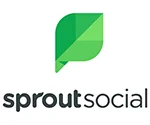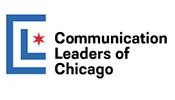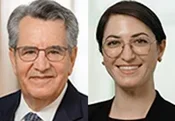In this special fourth anniversary episode of Taking the Lead, Curtis Sparrer, Founder of Bospar PR, turned the tables by interviewing me about AI’s role in leadership, and several other critical leadership topics.
My key points? It’s fundamental for leaders to incite action within their employees, establish a positive workplace culture, strive for healthy working relationships, and model the behavior they desire, whether leading in a corporation or agency, regardless of the organization’s size.
Here are excerpts from the full video interview:
You've been talking to all sorts of executives and leaders across the industry. What are they telling you about? What are they concerned about? What are they excited about?
I know some leaders are still afraid of jumping in. Some are concerned AI will take their jobs. I don't think that's the case, because there's always going to be that human element, that editorial element, that judgment, that I believe only a living, breathing human can bring to the table. I think it is so important for all of us, to better understand AI and how to use it ethically.
This is especially important for me, for two reasons: Nearly all of my clients are in PR marketing, communications, and advertising, so they're managing through this, and I need to understand AI to help empower them, and 2). The coaching industry is exploring and understanding what AI’s role should be in our work.
What’s most important for both industries is to eliminate any fear and replace that fear with knowledge.
How do you get leaders to go beyond the mere algorithm of their job so they won't be replaced by A.I. in the future?
I'm going to date myself here for those who don't know: I was in PR agency life for 27-plus years before becoming an executive coach, trainer, and consultant. (And I just realized that you might have been in kindergarten when I started in the business).
I started, as many of my peers did, in media relations and working with journalists and damn, I was good. I'm going to own that.
Now, as well as then, I believe it’s all about building that relationship with the media. Those of us who were willing are willing to put that time in were rewarded, and those willing to build relationships with the media will be rewarded as well.
And that’s equally true with your clients and your teams; Build the relationship, and build the partnership.
It's not just about them doing the work of the agency or the corp comm department. It is building the relationship, so we may serve our clients.
How do you create a culture where you encourage career development?
I think it's two things.
First, if you want your people to do something, step up and do it. Model the behavior you desire. There's this great Ralph Waldo Emerson quote: “What you do speaks so loudly, I can't hear what you're saying.” So if that’s what you want at your agency, encourage your people to go to career-developing events.
I think you can take it up a notch by saying, “I will fund your going to these events. And you must return and do a presentation to the team on what you learned.” So you’re spreading that knowledge, and getting better ROI on that initial investment. If an agency leader is generous in funding professional development and networking and requires the person to step up and be a leader by sharing the knowledge back with the agency, it results in success.
Second, whatever you want from your team members, should be part of the metrics of either promotion, salary increase, or bonus. If you want your people to be out there networking, because there's an advantage to them, to the clients, and to the agency at large, factor that into the aforementioned metrics.
We measure what's important. I think if you do these things, you’ll get greater participation. When a leader reiterates the values of the organization, and if one’s values include networking with media to build relationships or professional development, the people who want that will feel a greater connection. And those who don’t connect with that will feel less of a connection. And that’s okay too. Eventually leave, either bu their choice, your choice, or a mutual decision.
Now that we are having all these algorithms mechanized at a level of speed and sophistication than ever before, does that change what leadership is?
I don't think it does. Of course, It depends on how we define leadership. Many people use leadership when they mean management, how they're managing the firm, how they're growing the firm, acquiring clients, all those things, all critical things.
Let’s start with the premise that leadership is a two-part choice:
Your conscious decision to lead people, to not just be a superb PR practitioner or manager, to not just be a business development or client service genius, and not just run a profitable firm. These are certainly critically important, But I’m talking about the challenging, sometimes frustrating, but ultimately rewarding opportunity to lead people, to human beings. That’s a specific, conscious decision.
And your employees’ conscious decision to follow you, or not. And that’s a choice they have regardless of where you both sit on an organizational chart. People can do their jobs, get paid, and come into the office, even if the office is working via Zoom. They can do the job, and complete the checklist. But that’s rather transactional.
You must ask yourself, are they consciously choosing to follow you?
And when they choose to follow you, that provides the opportunity to be transformative. You can transform your corporate communications department, or your agency for the future, you can transform your people and empower them to be the kind of PR professionals they want to be, to create the careers they desire for themselves.
That's the real opportunity. And when you both make that choice, it’s amazingly fulfilling.
I wanted to get your thoughts about how leaders should test themselves to make themselves better and why, if at all, they should even do that.
I think one should look for one’s leadership heroes. They can be iconic leaders from the past. I worked for Jean Way Schoonover and Barbara Hunter, both agency glass ceiling-breakers, and they've inspired me. Marina Maher still inspires me to this day as do so many others. Your leadership heroes can even be bosses you work for. They can be your peers, or people in the generation or two after yours.
I don't think it's a matter of competitiveness. I think it goes back to that curiosity of what great leadership looks like today, and who is leading in ways that I admire. What do I want to take from each of them, perhaps reach out to them to have a Zoom conversation about the leadership challenges they faced. Consider getting a leadership mentor. Remember, that mentor, can be younger or less experienced than you. They just have to be the kind of leader you admire.
Are there any last points you would like to make to all of the people who watch or listen to this so that they can take their 2024 to a new level?
This will be a tad self-serving. Please share the Taking the Lead podcast from my website Jacobscomm.com, from LinkedIn, or the Jacobs Consulting & Executive Coaching YouTube. This is not about me, this is about the leaders I interview. I'm so humbled by those leaders that come on the show, whether from agencies big or small or a corporate communications department.
They share their leadership wisdom, their leadership faux pas, which we love, the leadership hurdles they’ve faced, and how they've overcome them. I find them so humble and so willing to share. I'm just amazed by that. I hope it's okay to say that if you share our podcasts with your social networks, I think that will help you and the people in your world learn more about leadership from great leaders like my friend Curtis Sparrer.
***
Ken Jacobs is the principal of Jacobs Consulting & Executive Coaching, which empowers PR and communications leaders and executives to breakthrough results via executive coaching, and helps communications agencies achieve their business development, profitability, and client service goals, via consulting and training. You can find him at www.jacobscomm.com, [email protected] @KensViews, or on LinkedIn.


 Thanks to advances in AI, social media has now taken a leading role in providing customer support services for brands, with adoption achieving noted fanfare among Gen Z consumers.
Thanks to advances in AI, social media has now taken a leading role in providing customer support services for brands, with adoption achieving noted fanfare among Gen Z consumers. Why universities must offer Communications Engineering degrees in the AI-driven world.
Why universities must offer Communications Engineering degrees in the AI-driven world. The Windy City is bullish on AI, according to a recent survey conducted by the Communications Leaders of Chicago in conjunction with DePaul University’s College of Communication.
The Windy City is bullish on AI, according to a recent survey conducted by the Communications Leaders of Chicago in conjunction with DePaul University’s College of Communication. The emergence of generative artificial intelligence (Gen AI) technology is a curveball that has the potential to significantly disrupt and erode voter trust in the media and governmental leadership.
The emergence of generative artificial intelligence (Gen AI) technology is a curveball that has the potential to significantly disrupt and erode voter trust in the media and governmental leadership. The process of conducting searches is being transformed by generative AI, which is now embedded within search engines such as Bing, Perplexity, and Google's Search Generative Experience.
The process of conducting searches is being transformed by generative AI, which is now embedded within search engines such as Bing, Perplexity, and Google's Search Generative Experience.


 Have a comment? Send it to
Have a comment? Send it to 
No comments have been submitted for this story yet.